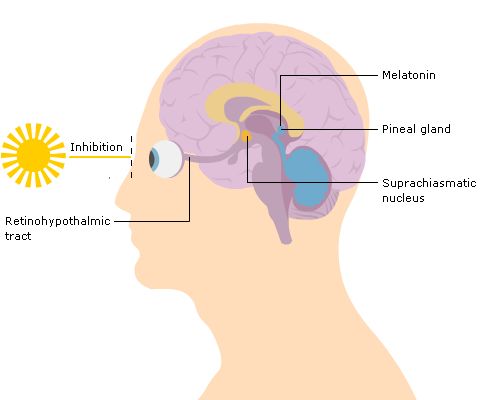Sleeping Part 1: Normal Physiology and Common Problems course for Nurses


This session is designed to help you manage the common sleep problems that arise in young children. It covers the normal pattern of sleep and variation in children aged between 0 and 5 years, and also discusses the range of sleep problems that can occur along with a description of their impact on the family.
Learning objectives
By the end of this session you will be able to:
- Describe normal sleep and sleep behaviour in young children (0-5 years)
- Outline the physiological basis for sleep behaviour
- Recognise the factors that impair or promote the development of sleep routines in children
- Provide guidance and support for parents of children with common sleeping problems
The importance of good sleep patterns has both an anecdotal and a sound scientific background to support the relationship between sleep and learning and behaviour. Strong associations have been identified with mood, attention and concentration in adults and children.
Before commencing this session you should:
- Have an understanding of basic physiology and behaviour management in young children
Associate Professor Helen Heussler (MB BS FRACP MRCPCH DM) is a Developmental and Behavioural Paediatrician and a qualified Sleep Physician.
Her career has been spent in Queensland, RCH Melbourne, Victoria and the University of Nottingham. She currently works at the Mater Children’s Hospital in Child Development and in the Queensland Paediatric Sleep Disorders Unit.
Her interest is in supporting and investigating the sleep difficulties in children with developmental and behavioural issues. Current research interests include the sleep of children with Prader-Willi and Angelman syndrome, Smith-Magenis syndrome, Velo-cardio-facial syndrome and Charge syndrome, mitochondrial disorders and autism, as well as the pharmacokinetics of melatonin.

- Anaesthesia | Paediatrics | Pharmacokinetic,Pharma...
- Posted By eIntegrity Healthcare e-Learning
- Posted Date: 2024-11-18
- Location:Online
- This session will provide an overview of pharmacokinetic (PK) maturation during infancy and the use of size models to describe PK differences between children and adults. It will go on to describe known pharmacodynamic (PD) differences and consider the im
- Anaesthesia | Paediatrics | Opioids In Paediatrics...
- Posted By eIntegrity Healthcare e-Learning
- Posted Date: 2024-11-18
- Location:Online
- This session looks at practical opioid pharmacology applied to the clinical use of different agents for neonates, infants and small children.
- Anaesthesia | Paediatrics | Advanced Paediatric Li...
- Posted By eIntegrity Healthcare e-Learning
- Posted Date: 2024-11-18
- Location:Online
- This session addresses the advanced management of the critically ill child and the child in cardiac arrest.
- Anaesthesia | Paediatrics | Head Injury
- Posted By eIntegrity Healthcare e-Learning
- Posted Date: 2024-11-18
- Location:Online
- This session describes the principles of stabilisation and management of a child with a head injury and how this differs from the management of an adult patient. This includes methods of assessment, effects and management of raised intracranial pressure,
- Anaesthesia | Paediatrics | Multiply Injured Child...
- Posted By eIntegrity Healthcare e-Learning
- Posted Date: 2024-11-18
- Location:Online
- This session looks at the initial management and stabilization of the multiply injured child with reference to published trauma guidelines.







